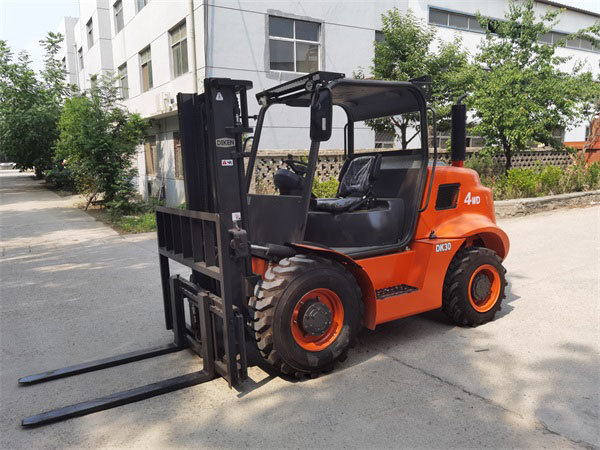Diken news
Mastering Off-Road Forklifts: Essential Insights for the Automotive Industry
Release time: 2025-04-08
When it comes to handling materials in challenging environments, off-road forklifts are indispensable tools in the automotive industry, especially for those working with off-road vehicles. These specialized forklifts are designed to navigate rough terrains, making them ideal for construction sites, outdoor warehouses, and various off-road applications. Understanding the key features and benefits of off-road forklifts can significantly enhance operational efficiency and safety in your organization.
One of the primary advantages of off-road forklifts is their robust design. These machines typically feature larger tires with deep treads, which provide superior traction on uneven and slippery surfaces. Unlike standard forklifts, off-road models are equipped with higher ground clearance, allowing them to traverse obstacles such as rocks, mud, and snow without getting stuck. This capability is particularly crucial in the automotive sector, where materials often need to be transported across varied landscapes.
In addition to their enhanced mobility, off-road forklifts are built to withstand harsh conditions. Many models come with reinforced frames and weather-resistant components, ensuring durability in environments where traditional forklifts would falter. The ability to operate in extreme weather conditions, such as heavy rain or snow, further underscores the versatility of these machines in the automotive industry, where outdoor operations are common.
Another critical aspect is the versatility of off-road forklifts. They can be fitted with different attachments, such as forks, buckets, and clamps, allowing them to perform a range of tasks beyond simple lifting. This adaptability means that businesses can optimize their material handling processes, whether it’s loading parts for off-road vehicles or transporting supplies across a sprawling construction site.
Furthermore, safety is paramount in any industry, and off-road forklifts come equipped with various safety features tailored for rugged environments. These may include advanced braking systems, stability control, and operator protection systems, reducing the risk of accidents and ensuring compliance with safety regulations. Training operators on the unique handling characteristics of off-road forklifts is also essential to maximize their effectiveness and minimize risks.
In conclusion, off-road forklifts play a vital role in enhancing operational efficiency within the automotive sector, particularly for businesses involved in the production and distribution of off-road vehicles. Their robust construction, versatility, and safety features make them a valuable asset in challenging work environments. By investing in off-road forklifts, companies can improve their material handling capabilities, ultimately leading to greater productivity and success in their operations.
One of the primary advantages of off-road forklifts is their robust design. These machines typically feature larger tires with deep treads, which provide superior traction on uneven and slippery surfaces. Unlike standard forklifts, off-road models are equipped with higher ground clearance, allowing them to traverse obstacles such as rocks, mud, and snow without getting stuck. This capability is particularly crucial in the automotive sector, where materials often need to be transported across varied landscapes.
In addition to their enhanced mobility, off-road forklifts are built to withstand harsh conditions. Many models come with reinforced frames and weather-resistant components, ensuring durability in environments where traditional forklifts would falter. The ability to operate in extreme weather conditions, such as heavy rain or snow, further underscores the versatility of these machines in the automotive industry, where outdoor operations are common.
Another critical aspect is the versatility of off-road forklifts. They can be fitted with different attachments, such as forks, buckets, and clamps, allowing them to perform a range of tasks beyond simple lifting. This adaptability means that businesses can optimize their material handling processes, whether it’s loading parts for off-road vehicles or transporting supplies across a sprawling construction site.
Furthermore, safety is paramount in any industry, and off-road forklifts come equipped with various safety features tailored for rugged environments. These may include advanced braking systems, stability control, and operator protection systems, reducing the risk of accidents and ensuring compliance with safety regulations. Training operators on the unique handling characteristics of off-road forklifts is also essential to maximize their effectiveness and minimize risks.
In conclusion, off-road forklifts play a vital role in enhancing operational efficiency within the automotive sector, particularly for businesses involved in the production and distribution of off-road vehicles. Their robust construction, versatility, and safety features make them a valuable asset in challenging work environments. By investing in off-road forklifts, companies can improve their material handling capabilities, ultimately leading to greater productivity and success in their operations.
Keywords: off road forklift










